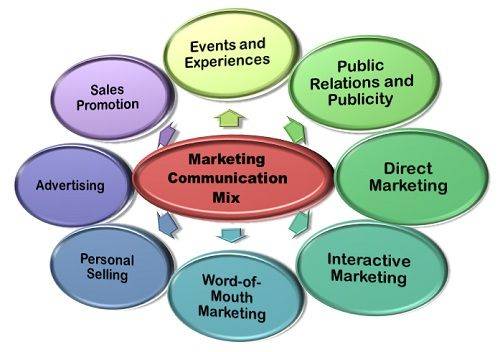
Marketing communication refers to the strategies and activities used by organizations to convey their messages and promote their products or services to their target audience. It involves the use of various communication channels and tools to effectively communicate with customers, build brand awareness, and drive desired actions.
Here are some key elements and strategies commonly associated with marketing communication:
Integrated Marketing Communication (IMC): IMC involves the coordination and integration of various communication channels, such as advertising, public relations, direct marketing, sales promotion, and digital marketing. The goal is to create a consistent and cohesive brand message across all channels to reach and engage the target audience effectively.
Target Audience Identification: Understanding the target audience is crucial for effective marketing communication. Research and analysis are conducted to identify the characteristics, needs, preferences, and behaviors of the target audience. This information helps tailor communication messages and select appropriate channels for reaching the audience effectively.
Branding and Messaging: Developing a strong brand identity and message is vital. The brand message should be clear, concise, and aligned with the brand’s values and positioning. Consistency in messaging helps build brand recognition and creates a cohesive brand experience across different communication channels.
Advertising: Advertising involves paid promotions through various channels such as television, radio, print media, outdoor billboards, online platforms, and social media. It aims to create awareness, generate interest, and persuade target audiences to take desired actions.
Public Relations (PR): PR activities focus on managing and enhancing the organization’s reputation and fostering positive relationships with the public, including customers, media, investors, and other stakeholders. PR activities may include press releases, media relations, events, sponsorships, and community engagement.
Digital Marketing: Digital marketing encompasses various online channels, such as websites, search engine marketing (SEM), search engine optimization (SEO), social media marketing, email marketing, content marketing, and influencer marketing. It allows for targeted and personalized communication with the audience.
Content Creation and Storytelling: Engaging and valuable content is essential for effective marketing communication. It includes creating informative articles, videos, infographics, blog posts, and social media content that resonate with the target audience, tell stories, and provide value.
Measurement and Analytics: Measuring the effectiveness of marketing communication efforts is important for optimizing strategies. Key performance indicators (KPIs) such as reach, engagement, conversion rates, and return on investment (ROI) are tracked using analytics tools. This data helps make informed decisions and refine future marketing communication strategies.
These are some of the key elements and strategies involved in marketing communication. The specific approach and tactics used may vary depending on the industry, target audience, budget, and marketing objectives of the organization.